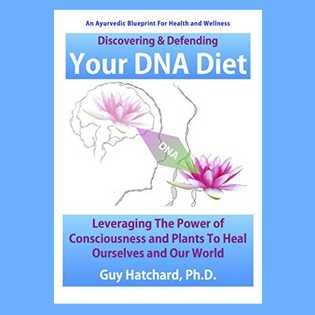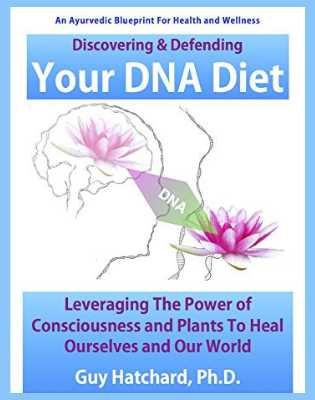The New Zealand government plans to deregulate biotechnology. What does that mean for our food supply and our health?
A comprehensive presentation by Kate Mason at the recent 100 year Biodynamic Conference in Australia cast light on the true extent of biotechnology experimentation currently underway and also on the techniques being used to deceive the public about its intent and scope. For one hour at a staccato pace, Mason flashed document after document on the screen detailing the involvement of national and international government and corporate interests determined to alter the nature and content of our food supply. If you can manage it, it is a truly frightening watch. It spoke volumes about the need for the International Genetic Charter.
Wildly imaginative biotech projects are being sold to governments by corporations under the cloak of a glossy facade of virtue signalling using deceptive buzz words like sustainable development, regenerative agriculture, increased resilience, climate smart mitigation, crop surveillance, strategic development, the food and agribusiness green revolution, transforming and future proofing the food system, zero hunger, innovation, the fourth industrial revolution, increasing consistency, nurturing the planet and feeding the world. Whew!!!
Biosynthetic food products are even being falsely promoted as more nutritious than organic food. None of this is backed by sound science. Although most, if not all, of these projects are doomed to fail and will ultimately disappear off the menu, along the way our taxes are being diverted to pay the handsome salaries of biotechnology schemers hungry for profit and fame, and boost corporate profits. More importantly, the experimentation will leave a toxic legacy of persistent genetic pollution which will continue to undermine plant health and human longevity through the generations.
Here are some of the main take home lessons of Mason’s detailed research into the murky world of biotechnology experimentation and promotion.
Food is being designed in labs and manufactured in biosynthetic fermentation vats and vertical farms. This involves unregulated gene editing of crops and animals using CRISPR gene editing proven to have unpredictable effects but without any requirement to label end point foods.
Genetic modification of plant root systems to enhance carbon storage.
Synthetic meat such as lab grown quail whose genes are forced to multiply using unspecified genetic promoters in a medium of barley containing pig genes. The synthetic quail also contains biosynthetic vitamins and added minerals to ‘enhance’ or rather ‘correct’ its deficient nutritional profile. This is about to be released in Australia and described as GMO free.
Food made from insect protein whose production is robotically controlled by AI technology in giant mega factories. Yes, these factories are being built right now and they are winning plaudits and awards from UNESCO.
Milk and cheese that doesn’t come from cows, but from GM yeasts engineered to mimic milk production described as GMO free. All currently funded by Australian government partnerships with industry and venture capitalists. An echo of what we can expect coming soon here in New Zealand.
Tracking and tracing of food using blockchain leger systems from farm (or rather biovat) to fork distributed via the internet. This includes certification of food production methods to ensure it is good for the climate. This will effectively cede control of all food production and marketing to corporate and government interests. This will be deceptively disguised on your mobile phone app as if you now own a share in a farm or an animal and are actively saving the planet by eating ethical, safe, low carbon footprint, (biosynthetic) food (???).
3D printed food which you can make and shape to look like real food on your home kitchen printer using liquid coloured ink goos made from repurposed old food re-enlivened with biosynthetic additives and then delivered to your door by Woolworth’s drones. Don’t laugh, mad biotech scientists admired by government and media wonks are busy making it already and cooking it with lasers. This BBC article “Why 3D printed food is set to go mainstream” describes it as ‘healthier’. Yummy!!!
Agricultural production organised around future foods biohubs able to monitor and control giant farms using AI surveillance. Crops are then synthesised into a variety of end edible (???) products with little resemblance to the original plants using precision (???) fermentation. The proposed food production processes use recombinant genetic techniques to bring together DNA from multiple sources. The first of these is being set up in Mackay, by the Queensland government because it is a centre of sugar production, a raw ingredient essential for the biosynthetic processes involved.
Genetically modified crops used to produce biofuels whose production will compete for land use with food crops.
Implanting tech devices in cows to monitor and control their microbiome in real time with the ultimate aim of producing personalised medicinal (???) milks. Yes, it really is happening.
Globalisation of the food production system including gene modification and patenting, pest management, fertilisation, distribution, and marketing. Capturing the global food market is potentially the most profitable business on the planet. Everyone has to eat every day. Governments are already partnering with the big multinationals in these areas. Fuelled by endless United Nations encouragement and reports.
A Global One Health System for human, animal, plant and environmental health using biotech pharmaceutical products. This is another agenda of the UN in partnership with the World Economic Forum, the WHO and corporate interests (principally including pharmaceutical giants) which is designed to change the way we view food. A.K.A. Resetting the Table for Pharmafood. This is being picked up by governments as they design national nutrition policies based on UN global models that are being talked about as “better and more nutritious for us”. Included in this agenda are plans to mandate the content and menu of school lunches.
Within this wide ranging agenda is the production of vaccines and pharmaceutical drugs in GM plants and in animals whose distribution or effect cannot be contained or recalled. Yes, it really is happening now in hundreds of labs around the world and being talked about and funded in the corridors of power.
There is just one small problem, none of this biosynthetic food and medical technology is actually healthy or proven safe. The growth of biosynthetic food ignores the mass of research findings which verify that diets rich in natural foods improve health and longevity. They reduce your risk of cancer and heart disease, the number one killers, whereas processed foods do the opposite.
For example a study of the eating habits of 126,000 people over 9 years published on June 10 2024 by the Lancet entitled “Implications of food ultra-processing on cardiovascular risk considering plant origin foods: an analysis of the UK Biobank cohort” found that whereas consumption of natural plant-based food lowers the risk of cardiovascular disease (CVD) mortality by 13%, ultra-processed plant based foods increase the risk of CVD mortality by 12%.
All over the world supermarket shelves are being filled with unhealthy food, but consumers are not being told about it, We are being lulled into complacency by government pronouncements on safety and sustainability, lax regulations and certification which are being driven by cosy partnerships with biotech pharmaceutical giants, food conglomerates and globalist organisations. These novel synthetic foods are being described in glowing and deceptive terms and it is all about to get far worse and more controlled.
None of this makes any sense, nor does the level of control seem possible until we remember what we have just been through during the pandemic. Fantasy can become reality when information is controlled. The exact processes being employed by those developing synthetic foods are hidden behind patents and the lack of any labelling requirements. Thirty years ago people were concerned enough about their traditional foods to demand labelling of genetically modified content. The time has come to renew these demands. They are even more urgent now. Get ready to protect our natural food sources, sign up to The International Genetic Charter here. Its simple straightforward provisions lay out requirements for labelling and protection from biotechnology experimentation. Please share it widely.
Here in New Zealand, our government is pledged to deregulate biotechnology, precisely the opposite of the lessons we should have learned from the pandemic response. Who makes these kinds of decisions? Are they in their right minds? The wild promises of the biotechnology industry lobby are empty, but worse still they cloak severe and unpredictable levels of risk. We should remember the disastrous genetic experiments on cows in New Zealand fifteen years ago sponsored by the government. Our food security and trade are the last things we want to place at risk. The situation requires a long hard look at the reality of consumer preferences and safety. Biotech PR promising sustainable development and improved health which is influencing government policy and ideas does not match the published scientific assessments, quite the reverse.






